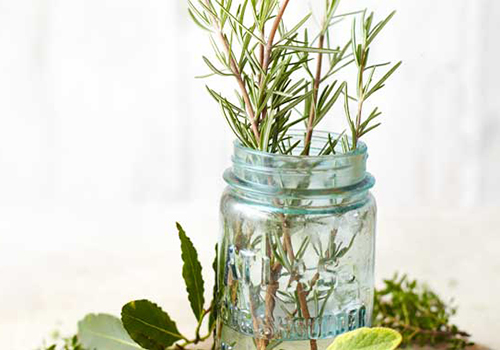
The Sunday Mail

Tendai Chara
ROOIBOS tea has been popular in Southern Africa for generations.
Since the turn of the millennium, it has gained popularity internationally.
According to documented historical accounts, the tea’s history is rooted in Cape Town, South Africa, where Khoisans, the indigenous Bushmen of the region, harvested the leaves from the aspalathus linearis plant for centuries.
The leaves were used as herbal remedies for many ailments.
In 1968, Annique Theron, a South African businesswoman, published a book on rooibos tea’s amazing health benefits.
After the book’s release, hundreds of studies found more about rooibos tea’s antioxidants and other health advantages.
With this new medical understanding, the tea’s popularity soared.
The outbreak of the coronavirus has resulted in many people switching to herbal teas such as zumbani, which is increasingly being used as a home remedy for Covid-19.
There is a growing lobby for the commercial production of local herbal teas such as zumbani, makoni and moringa.
Ms Caroline Jacquit, the projects manager for Bio-Innovation Zimbabwe (BIZ), a non-profit innovation hub which drives research and facilitates knowledge-sharing around existing and potential commercial applications for indigenous underutilised plants, said zumbani can be grown commercially and exported.
“BIZ, in conjunction with the National Herbarium and Botanical Gardens, conducted research which proved that zumbani can be commercially cultivated and processed. We must take the route which was taken on rooibos and make zumbani an internationally known tea,” Ms Jacquit said.
She said farmers can partner private companies, research organisations and the Government to develop an international market for local herbal teas.
“There are a large number of locally available plant species that could be used by small-scale farmers, especially in the drier parts of Zimbabwe. We studied some of these plants. What must be done now is to develop them into marketable products.
“Zumbani should be transformed from potential revenue into actual revenue sources. We want to see farmers generating real cash from such underutilised plants as zumbani.”
When crushed, zumbani leaves give off a strong lemon-like smell.
It is said to be one of the most aromatic of Zimbabwe’s indigenous shrubs.
According to BIZ, zumbani, which is also known as the fever tea tree, requires little maintenance.
Dr Kamwelo Banda — a Malawian-born Harare-based traditional healer, herbalist and spiritualist — believes zumbani and other local herbs can be commercialised.
“I was in India two years ago and I noticed that they are very aggressive when it comes to developing and marketing their herbs. In my view, if marketed aggressively, zumbani can be easily accepted by the global tea market,” notes Dr Banda.
Research by BIZ revealed that herbs like zumbani tolerate most soils, are drought tolerant and can be a very reliable source of livelihood for farmers.
Makoni herbal tea can also be commercialised.
Produced from the leaves of the fadogia ancylantha bush, which grows mostly in the Eastern Highlands, the tea, which is believed to have medicinal properties, is commercially produced by the Makoni Indigenous Tea Producers’ Association.
Traditionally, the herbal tea was used to boost the immune system, build stamina and treat abdominal pain, including menstrual pain, backache, chest pains, coughs and flu, including other ailments.
The herbal tea is used as an aphrodisiac and to treat fertility problems in women.
The Southern Alliance for Indigenous Resources (SAFIRE) has been facilitating the establishment of a community-based enterprise for the production and marketing of makoni tea in Nyanga.
The association generates revenue from the sale of the pre-processed leaves and receives dividends based on returns from tea sales locally and abroad.
Research has shown that while little is known about makoni herbal tea, the product has over the past years dominated the World Summit on Sustainable Development, and is a favourite in Western countries.
Although the moringa tree, commonly known as the horseradish tree, is native to India, it is now found all over the world, including Zimbabwe.
According to BIZ, moringa is one of the most “useful” trees on earth and can be grown commercially in Zimbabwe.
“It is a fast-growing plant which can reach three metres in just 10 months after the seed is planted.
“It is a healer and also possess surprising water purification capabilities,” read part of a description of the plant on the BIZ website.
Research has shown that moringa leaves are an excellent source of protein and a very low source of fat and carbohydrates.
The leaves are believed to have a stabilising effect on blood pressure and control glucose levels.
They are used to treat anxiety, diarrhoea and inflammation of the colon, skin infections, scurvy, intestinal parasites, and many other conditions.



